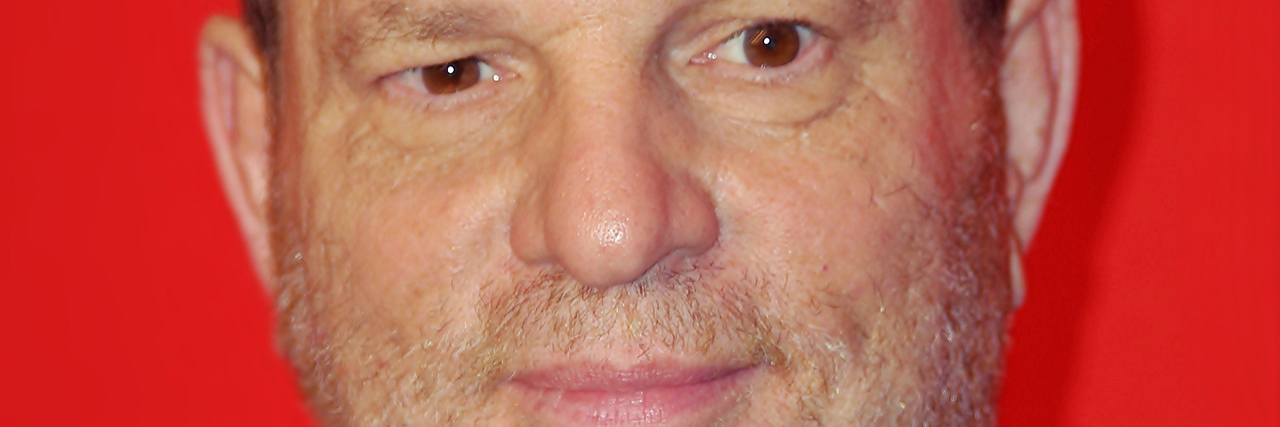Why I'm Not Celebrating Harvey Weinstein's Rape Conviction as a Sexual Assault Survivor
Editor's Note
If you’ve experienced sexual abuse or assault, the following post could be potentially triggering. You can contact The National Sexual Assault Telephone Hotline at 1-800-656-4673.
On Monday, a jury found ex-Hollywood super producer Harvey Weinstein guilty of a criminal sexual act and third-degree rape based on a trial that included six sexual assault survivors in New York. Weinstein escaped the two most serious charges — predatory sexual assault. And while many others are celebrating any conviction at all, as a survivor of sexual assault and a witness in hearings against my perpetrator, it’s not enough. Not until sexual assault survivors stop being used as collateral damage in a justice system rigged in favor of perpetrators.
I reported my sexual abuse when I was 18 years old. Picked up the phone and, shaking, called my parents to tell them (in as little detail as possible) what happened to me during three years of high school. What started as hugs and a little extra attention for a girl starving for affection subtly morphed into an abusive power dynamic with a much-older man where I was angrily shoved back to my knees when I asked to stop because it hurt.
The choice to report him was simple — I wanted to protect a friend who was still in high school. But not once did I give any thought into what coming forward about my sexual abuse would do to my life, and I was lucky: The people I told believed me. What followed was a mind-boggling number of interviews with state police, an assistant district attorney, a private attorney, department of education officials, a social worker, a children and family services lawyer, and eventually, testifying for hours in three hearings.
Here’s the thing about testifying in a case against a sexual predator. As a survivor, you’re a witness, not the plaintiff. While your perpetrator is protected by laws that uphold the rights of the accused, as a witness, you have no agency or say in what happens. It’s not your case, you have no control and anything is fair game during cross-examination. It’s brutal.
On the stand, one of Weinstein’s accusers, Jessica Mann, was forced to relive a sexual assault she experienced as a child as well as provide invasive details about her mental health, including depression and suicidal ideation. My perpetrator’s lawyer hurled my sexual orientation at me, saying because I was “believed to be a lesbian,” I made up the sexual abuse. I wasn’t out at the time. They wanted my therapy records so they could see if I was lying. I had to clarify what I meant by “blow job.”
I felt contaminated, dangerous, dirty, worthless, isolated. I couldn’t keep it together. I missed month’s worth of class and drove recklessly everywhere knowing if I crashed that car I would total it and everything in it. I became like a walking wound, lashing out in anger at the smallest provocation or injustice because everything felt so raw and intolerable. Eventually, I had to walk away. I moved across the country, but the trauma followed me. I fought and fought against it, trying to shove it down and self-harm it away until I landed in the hospital and got better support.
Testifying against sexual perpetrators has long been dubbed the “second rape” for survivors. Research already shows all survivors of sexual assault have a higher risk of developing post-traumatic stress disorder (PTSD), depression and suicidal ideation. Though research doesn’t yet track outcomes for survivors who testify, evidence suggests an even greater risk of adverse outcomes due to the traumatic nature of serving as a witness, including feeling like the assault is happening all over again.
Though my perpetrator faced some consequences for his actions, he escaped a criminal trial because the assistant district attorney let the statute of limitations run out — two years after I turned 18. The statute of limitations for a civil case ran out at the same time, and we were discouraged from filing a civil suit before the criminal case. In short, my perpetrator was never criminally charged, not necessarily because he’s innocent, but because of a legal technicality that lets countless sexual abusers walk free.
Similarly, Weinstein escaped his two most serious criminal charges in part because of how the five charges were structured — he could only be convicted for a maximum of two of them. It’s a legal technicality that stacked the deck in Weinstein’s favor. He may face 25 years in prison based on the charges he was found guilty of, but how do we reconcile that for survivors like Mann, Miriam Haley and Annabella Sciorra who survived abuse, the dehumanizing process of testifying in court and now must carry that trauma for years?
Survivors who have spoken out against abusers, reinvigorated by the accusations against Weinstein in 2017, should be celebrated for their courage. And it is indeed progress that some powerful men are facing legal consequences for their abuses.
“This is a new landscape for survivors of sexual assault,” Manhattan District Attorney Cy Vance said after the verdict, according to BuzzFeed News. “These heroic women broke their silence to hold Harvey Weinstein accountable, and a generation of sexual assault survivors heard their every word.”
But I’m not going to celebrate because Weinstein faced some consequences when the cost of justice continues to be so high for survivors who already lived through hell once.
Image via Creative Commons/David Shankbone

